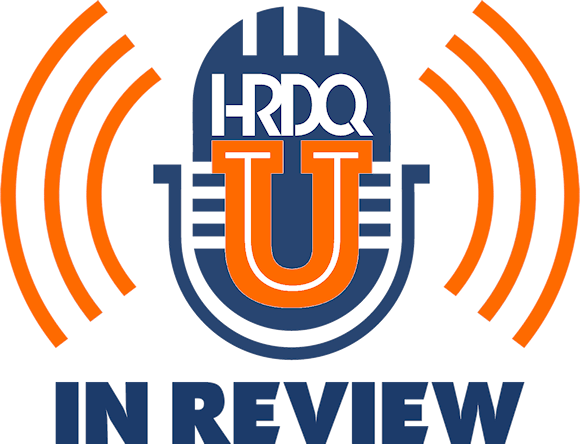

Cara Parker shares her expertise in organizational development and leadership strategy. She delves into the iterative process of goal attainment, emphasizing the importance of setting micro-goals, adapting, and fostering team reflexivity. Cara also explores how strategic pauses, facilitated through team coaching and assessment, contribute to goal achievement.
We discuss the evolving landscape of Learning and Development (L&D), highlighting the shift towards a comprehensive approach. Cara explains how elements such as cohort-based group learning, one-on-one coaching, micro-learning, and online reinforcements enhance the effectiveness and ‘stickiness’ of learning experiences.
Cara provides insights into her upcoming projects, focusing on team development campaigns and interventions aimed at strengthening teams. We also reflect on key takeaways from our recent webinar, emphasizing the importance of teams having their own strategic plans and engaging stakeholders in the process.
Join us as we delve into the world of organizational development and leadership strategy with Dr. Cara Parker. Gain valuable insights into team coaching, goal attainment, strategic planning, and the evolving landscape of L&D. Whether you’re a seasoned professional or just starting your journey in HR and training, this episode promises to equip you with practical tools and strategies for enhancing soft-skills training in your organization. Don’t miss out – tune in to the HRDQ-U In Review podcast, available on all major streaming platforms.
00:01
Welcome to this week’s episode of the HRDQ-U In Review podcast, where we bring you the latest insights and practical tools for enhancing soft skills training within your organization. This podcast is brought to you by HRDQ.com, and I’m your host, Sarah, Learning Events Manager at HRDQ-U. And today, I have Dr. Cara Parker joining me to discuss the webinar Strategy Implementation: A Guide to Writing Vision, Mission, and Goals for Your Team. Thanks so much for joining me today, Cara.
00:30
You are welcome. Thank you for having me. And to kick things off, for those that weren’t able to tune into the webinar or they haven’t had the chance to watch the recording yet, can you share a little bit about who you are and what you do? Yes. Well, again, thank you for the opportunity. And I have a firm in Northern Virginia called C. Parker Consulting.
00:56
And it really focuses on organizational development. We have two pillars that I say, one around leadership development and one around strategic planning. And forgive the buzzword, but I really feel like the synergy comes together when we’re able to match the two because you can’t have an organization without the people. So the two have to work hand in hand. And that’s what we bring into the engagements that we have.
01:21
whether it’s leadership where, don’t forget the strategy piece, or whether we’re working with an organization on their strategy, hey, don’t forget the people in the human element side as well. We have been in business since 2008, and uh we really work across the United States, and we have a lot of different types of clients. We don’t define ourselves by the client, but we define ourselves by the product and service that we offer.
01:52
That’s wonderful. And I would love to know what inspired you to pursue a career in organizational development and leadership strategy? Yeah, that’s a great question. I started off my career in nonprofit, and I realized the need for lot of formalization in the nonprofit space. And then from there working and having a large influence in that nonprofit,
02:17
I was able to advance my education through an MBA and then eventually in a PhD to really grow in the field. I really just want to see organizations, good organizations and good people propel themselves into success and just continue to get better and better from a development side. And if I can be a small part of that, then I want to be able to use those skills and talents that I bring into the workplace to help those clients do so.
02:46
And you know, in today’s environment, things are changing so rapidly at a lightning speed pace. I would love to know from your perspective and from your experiences, what do you see happening in the L &D space right now? I believe that it’s all about the stickiness of the content and the material. And I say that because we are bombarded all day, every day between texts and emails.
03:13
and calls and just social media and all these different things just coming in at us. And so being able to sort through what’s good for us and what works for us versus leaving the rest behind, I think is a challenge for all of us, especially in the L &D space. And so I believe it’s all looking for the ways to make our content sticky and relevant for our participants. So.
03:40
A couple of uh things that our group does in our organization is really looking at L &D holistically. So we love the idea of cohorts learning together and learning off of each other, ideally in a classroom, face to face, but we know that that feels a little bit old school. So how do we sprinkle in some of the virtual elements into it to meet the needs of those clients that don’t have that?
04:10
capability of everyone going through a learning and development program together. So I’m a big fan of the micro learning, micro bytes, card learning, uh online. Also, I really feel like L &D, any sort of training that we do needs to be coupled with a one-on-one coaching because as adults,
04:32
We learn, we have to apply it, but we have to talk it through about what’s really important to us and helping a coach, helping someone to process the learning and the content, I think really goes a long way. And of course we know all about online learning now, so I won’t get into all of that, but I would say definitely a holistic look between the face-to-face, there’s power in going through a program or a training session with your peers.
05:00
or similar people in your role if it’s not within your organization coupled by the reinforcements and then really bringing it together through a process, through a coach to help you process it. Yeah, absolutely. And that’ll lead me up to my next question here. know, what exciting things are you up to next on this? You know, we have what, six months left in the year here. What’s on your roster? Yeah.
05:24
Last year, we really focused a lot on strategic planning, which then we had the opportunity to share our research and our thoughts of really the best of the best curation of material that we have found out there through HRDQU a couple of weeks ago. So this year, we’re taking that a step further and applying a lot of what I did, honestly, in my dissertation for my PhD into really developing teams.
05:51
And I’m encouraged by that because a lot of my colleagues seem to be playing in that space too. So for some of us, we may think, oh, that’s competitive, but I’m really seeing it as really an opportunity to collaborate together. And some of the pieces of research that I really discovered and really came to light from team development during my PhD a couple of years ago was that we have to align our goals.
06:20
up through the organization and you heard me talk a lot about that if you were able to attend the webinar that we did a couple of weeks ago. But that alignment is so key for a team to reach its goals and then ultimately for the organization too. But it’s never that as simple because we also have to make it really relevant to the individual. So we really want to focus on the team’s reputation. Team members want to be part of success, want to be a part of a winning team.
06:46
And so you might have the great strategy, but if your team’s got a bad reputation, you don’t want to be on that team. And then that certainly impacts motivation. So really want to focus this year around team development from alignment, the reputation, and then being able for that individual team member to see how their interests and their development matches and aligns again, back up to the team. So it’s almost a three tier. We’ve got the team member.
07:13
who aligns with the team’s strategy, who aligns with the organizational strategy. And like I said, I discovered a lot of that through my research. So I want to take that really empirical research piece of it and really put the practical application into it this year. So, funny you mentioned it, my colleague and I are meeting on Monday to really flesh out what this team campaign looks like for the remainder of the year. So more to come for sure.
07:40
Well, that’s great. We can’t wait to hear. You’ll have to keep us updated so we can share out with the audience. And you mentioned a lot about our webinar. So it’s a great segue into this next question that I have for you on the recent webinar that we did together a couple of weeks ago. Strategy implementation, a guide to writing a vision, mission and goals for your team. Can you share with the key takeaways were for our registrants at that event?
08:06
Well, the big piece I hope they took away and my goal was that they really walked away with a toolbox of just chock full of how to very practical. So I would say that first off, having that checklist of are we even ready to embark as a team upon a strategic plan? We provided a big checklist around that and a lot of those indicated, do I have access to the data?
08:31
that I need as a team to be able to write a plan? Do I have adequate time to dedicate to this? Do I know who my stakeholders are? Really just understanding the processes and the organization itself and being able to make the space to spend writing a strategic plan. And then we talked a lot about gathering all the information that they can from their stakeholders. Number one, identifying who their stakeholders are.
09:00
And our participants were so good, they came up with a huge laundry list that we crowdsourced of different types of stakeholders around vendors and internal and external teams. And we put all that information then into a spot matrix or a SWOT analysis so that we really have all of our artifacts and the feedback that we’ve gotten from our stakeholders through focus groups and interviews.
09:25
in one spot where we’re able to determine what are those strengths, weaknesses, opportunities and threats for our team. And once we get that in a document at a glance, oh the next step was to really think about, okay, what is our vision and what is our mission? And we gave some tools and templates. We did the old mad libs around writing a vision. We used a mad lib to write a vision and a mission statement. And then of course, really taking that into goals. And we talked about some really
09:55
ways to get your team involved so that there’s ownership across the team around looking at the SWOT analysis, turning those into different goals. And we said, Hey, keep it at the three number because we can’t have too many. So three is a really good number to work with and write some of those strategies and implementation plans. I’m a big fan of visuals. And so I provided a lot of visuals for the toolkit as well. Kind of these one stop shop looks at
10:25
this current situation and even from an execution standpoint and implementation side. So those were the takeaways that I’m really hoping that the group walked away with. And I would say the big final one was making sure that your strategic plan was active and that it was not just stuck up on a shelf and lots of flowery language, but really implemented and at least once a month taking it and really doing a close review.
10:55
around what’s working, what’s not working, how are we progressing and making changes. Nothing has to be in stone. Yes. And it was a really interactive webinar. So if you haven’t had the chance to watch that recording, and I do suggest that you do so. It was really fun over there. And we had a really engaged audience with us who asked some really great questions. So I’d love to dive a little bit deeper into some of those questions today. Could you share what strategic planning
11:24
um essential for is essential for team success? Yeah, the benefits are just so key. Number one, it is a great marketing tool for a team, especially within living inside of an organization where if the team lead and the team members are all syncing up into supporting one strategy, what a great marketing tool of what your team will do and what your team won’t do. So I think that is really important. It also provides a roadmap.
11:54
for teams to use and developing their success and their products. And again, what may be in a phase one versus a phase two and keeping it realistic. So often as we know, we get so many requests and sometimes things come across our desk where we think, I don’t really think that that’s, that falls within our purview. Having a strategic plan will allow you to say, yes, let’s take that on. That’s perfect. What a cool opportunity or.
12:18
No, not for us, or maybe just not right now. So it really helps to answer some of those questions. It helps teams, would also say, especially working on that SWOT analysis to anticipate challenges. If you were looking especially externally on your SWOT, I mean, even internally for that matter, it helps you to determine, hey, this is something we got to keep our eye on.
12:43
And we got to keep our eye on this one maybe because it’s a cool opportunity and we want to capitalize on that. The other benefit and the reason it’s so good for team success is that it helps to align resources. You know exactly what you need, the types of skill sets on your team. And then you can either hire to that or assign that accordingly to people and on your team’s strengths. so it really, and if you have a gap, which
13:11
Most teams do have a gap, then you can either go get additional training or you know the next time you do a hiring and you have that available to you, there might be some skill sets that you want. So really from a resource perspective too. And it really just contributes to making decisions and that long-term success side of it. Yeah. And that’ll lead me into my next question here for you. What are the key components of an effective strategic plan?
13:39
Yeah, and that’s really what we walked through on the webinar with those tools and templates. So just kind of in short, you’ve got to have a clear mission and a clear vision. And the vision is where you want to go, where you see yourself going as a team. And the mission is what you’re doing. And again, we provided a lot of those templates on how to do that. You’ve got to do a SWOT analysis, the strengths, weaknesses, opportunities, and threats, because a lot of what you build on
14:08
starts from there. You got to have specific goals and then the strategies. So a goal without action is just a nice, some nice words on a paper. So really making sure that you’ve articulated a goal and then the objectives or the strategies of how you’re going to get there and who’s going to do what. We also know about accountability and speaking of accountability, just monitoring that success. So
14:36
Who’s doing what, when, by what time, what are the performance indicators, the key performance indicators, KPIs that we want to make sure we have in place so that we know if we’re tracking to it, to the plan, or if we’re lagging or maybe we’re advancing and there’s other opportunities. So it gives you a discussion starter when you really follow those trackings. And what about innovation? Can you talk about how that ties in to strategic planning?
15:06
Yeah, you know, I think we’re seeing a lot from an innovation perspective around AI and it’s a hot topic. know HRDQ is doing a lot of webinars around it and I’m really enjoying those. And I think learning how to work smarter goes a long way, especially in speeding up the process. you know, innovation is good, but it also has
15:34
client that really is focused right now, not so much on innovation, they feel like they’ve done that, but now on really streamlining and making sure that there’s consistency. So there’s some sort of a balance there that we all need to strike around being innovative and creative and getting out in front. And I love that. And then once you’ve done that, not always seeking the next best thing, but balancing that with good processes in place as well.
16:04
Yeah, I would imagine too about, know, when teams have their own individual strategic plans, but to ensure that they also align with the company as a whole and everyone has the same clear vision that they are working towards. Right. I am all for innovation. I love it, but you can’t go rogue too, especially when you live within an organization. that alignment, know where you can be innovative then and kind of where those boundaries are too.
16:31
And then how can teams ensure a successful execution of their strategic plans? It’s definitely making sure that you, that we have those actionable steps in place and they’re assigned to someone and there’s an accountability set up and timelines and that person is giving the resources to do so. And so
16:52
Definitely setting the clear priorities because obviously there’s things on a strategic plan that are going to be more important than others. So being very clear about what the priority is or if you’re phasing it and being able again to assign those performance metrics. I recommended when we were finalizing our webinar that day that every meeting end with a nod to the strategic plan or begin with a nod to the strategic plan for that matter.
17:22
asking individuals some success stories that they have found out of working with the strategic plan or how they’ve been able to further the strategic plan and giving some kudos back to those individuals. And then no less than once a month having a meeting with the team focused on the plan to make sure that it is moving forward. m
17:47
Before I let you go today, can you let listeners know where they can go learn about your work and connect with you? Yes, I would love for you to. We have a very active website and we’re active on social media. So first off, our website is www.cparkerconsulting.com. We have a tab especially dedicated to strategic plans. So I would encourage you to visit that tab.
18:12
And then we have a tab called discussions where you’ll see our blogs and a lot of those are related right back into strategic planning. And we’re very active on social media. And once you get into our website, you’ll be able to click and go connect with us on Facebook, uh Instagram, X and certainly LinkedIn too. We’re very active and love to talk about this kind of stuff. So we’d love to continue the dialogue individually with each of you listening.
18:41
Great, yes, make sure that you connect with C Parker Consulting. We will have all the information linked below as well as um the webinar, so you can check that out. And it’s really been fantastic chatting with you today about all things strategic planning and team development and innovation and what you should and can and cannot do there. So I think that it was a great conversation.
19:05
Well, thank you, Sarah. And I always enjoy working with you in HRDQ-U and thank you for the opportunity. And yeah, it’s all mishmashed together as you were kind of alluding to. You’ve got to have the people and the strategy and the innovation, and kind of live in our swim lanes that we still have, but still kind of push the boundaries a little bit. It’s just all about knowing the right steps to take and to follow through. Great. Yeah.
19:30
And we hope that you all enjoyed listening to the HRDQ-U In Review podcast available on all major streaming platforms. If you did enjoy today’s episode, make sure to give us a follow and leave us a five-star review that helps us be able to provide this content to you every week. Thank you all for tuning into this week’s episode, and I will see you all next week.


Listen to this podcast event at no charge with your
HRDQ-U Free Access Membership
Cara Parker shares her expertise in organizational development and leadership strategy. She delves into the iterative process of goal attainment, emphasizing the importance of setting micro-goals, adapting, and fostering team reflexivity. Cara also explores how strategic pauses, facilitated through team coaching and assessment, contribute to goal achievement.
We discuss the evolving landscape of Learning and Development (L&D), highlighting the shift towards a comprehensive approach. Cara explains how elements such as cohort-based group learning, one-on-one coaching, micro-learning, and online reinforcements enhance the effectiveness and ‘stickiness’ of learning experiences.
Cara provides insights into her upcoming projects, focusing on team development campaigns and interventions aimed at strengthening teams. We also reflect on key takeaways from our recent webinar, emphasizing the importance of teams having their own strategic plans and engaging stakeholders in the process.
Join us as we delve into the world of organizational development and leadership strategy with Dr. Cara Parker. Gain valuable insights into team coaching, goal attainment, strategic planning, and the evolving landscape of L&D. Whether you’re a seasoned professional or just starting your journey in HR and training, this episode promises to equip you with practical tools and strategies for enhancing soft-skills training in your organization. Don’t miss out – tune in to the HRDQ-U In Review podcast, available on all major streaming platforms.
[ PODCAST PLAYBACK ]
You must be signed-in with your membership account to access this content.
Enjoyed this podcast? Have suggestions on how we can improve? Please take our quick survey and receive a coupon for 15% OFF any of our individual membership plans.
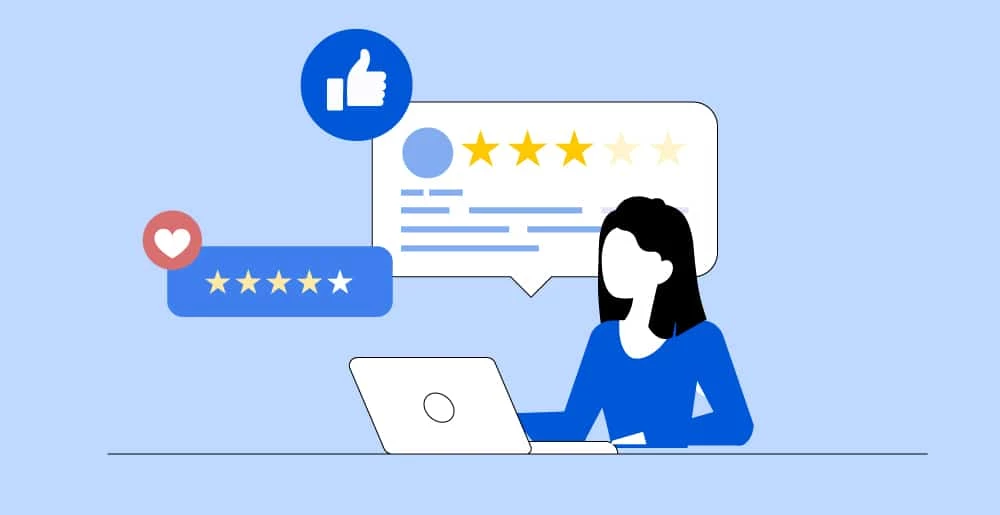
*Instant 15% coupon available upon completion of survey.
Want to learn more? Become an Individual or Corporate member to watch this and hundreds more webinars!
Gain a holistic and practical approach to team-based strategic planning. By addressing the outlined learning objectives, participants gain the knowledge and skills necessary to lead their teams toward a future defined by purpose, collaboration, and achievement.

Dr. Cara Parker
Cara Graham Parker, Ph.D., is President/CEO of C Parker Consulting, Inc. (CPC). CPC is located in Fredericksburg, Virginia, and specializes in organizational development for small and mid-sized organizations. Cara and her team consult on strategic planning, organizational change, and structure, and facilitate leadership workshops, retreats, and leadership coaching for individuals and organizations. Clients include nonprofit organizations, associations, governments, and corporations.

C Parker Consulting, Inc. (CPC), a woman-owned small business based in Northern Virginia, develops and delivers proven products and services that help corporate, government, and nonprofit leaders realize their potential through strategic planning, training/facilitation, coaching, and practical application.
Since 2007, our programs have helped clients in the United States Postal Service, law firms, utility, defense, and the healthcare industry create leaders who grow and thrive and organizations with meaningful, usable strategic plans.
CPC wants to see our clients excel. This optimism is summarized in our tagline: Perpetual Movement to Results.
Training Tools for Developing Great People Skills
This event is sponsored by HRDQ. For 45 years HRDQ has provided research-based, off-the-shelf soft-skills training resources for classroom, virtual, and online training. From assessments and workshops to experiential hands-on games, HRDQ helps organizations improve performance, increase job satisfaction, and more.
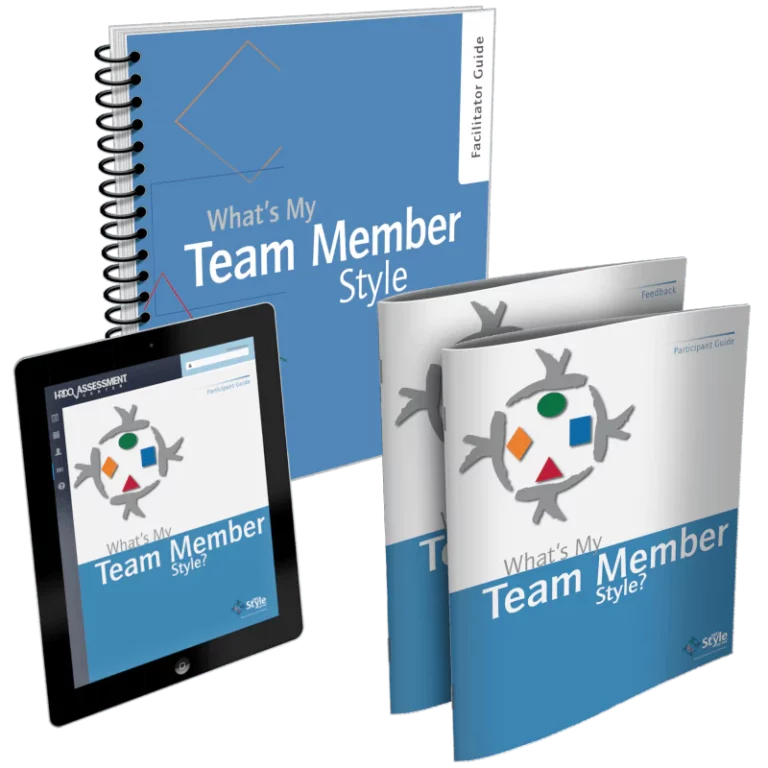
What's My Team Member Style
This self-assessment measures team member preferences for basic behavioral styles, including direct, spirited, considerate, and systematic. The feedback component provides individuals with insights into how others view them and improve their interpersonal relationships to become more effective team members.
Buy at HRDQstore.com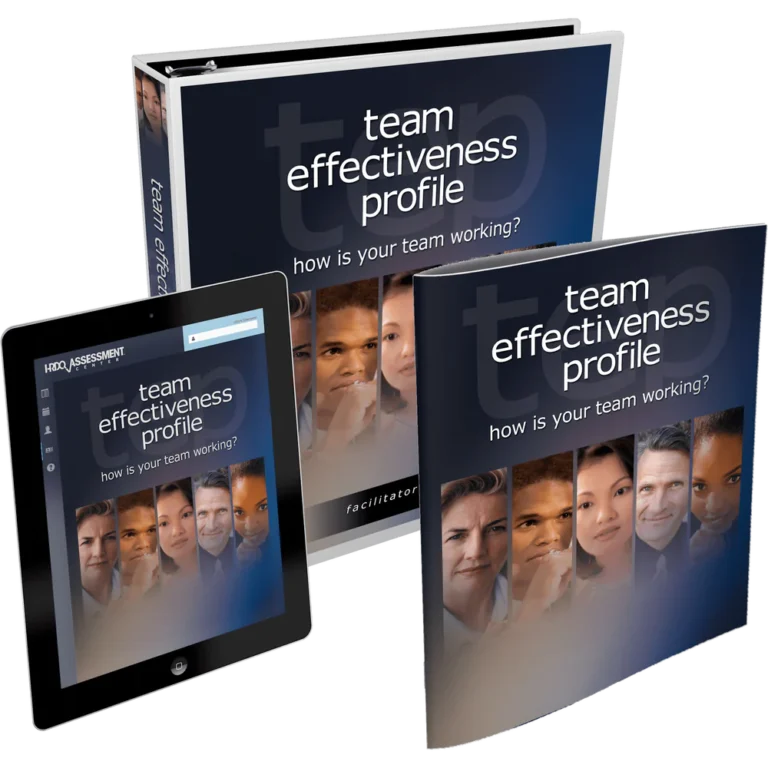
Team Effectiveness Profile
Don’t let undisclosed issues drain your team’s efforts and productivity. Teams will complete an assessment that uncovers the issues that block effectiveness, and they will learn how to reduce or eliminate the issues that block their effectiveness, how to maximize group efforts, and they will gain insights into how to improve team dynamics.
Buy at HRDQstore.comThe HRDQ-U In Review Podcast, brought to you by HRDQU.com, brings you the latest insights and practical tools for enhancing soft-skills training in your organization. As a learning community for trainers, coaches, consultants, managers, and anyone passionate about performance improvement, we interview subject matter experts and thought leaders from recent webinars they presented with us to take a deeper dive into the content they shared and answer all your questions. Join us as we explore new ideas and industry trends, share success stories, and discuss challenges faced by professionals.
The HRDQ-U In Review Podcast is intended for HR and training professionals, organizational development practitioners, and anyone interested in improving workplace performance and productivity.
New episodes of HRDQ-U In Review are released every week.
The length of the episodes varies, but they typically range from 15-30 minutes.
The podcast covers a wide range of topics related to HR and organizational development, including leadership development, team building, communication skills, conflict resolution, employee engagement, and more.
No, HRDQ-U In Review is completely free to listen to.
You can listen to any available HRDQ-U In Review Podcast right on our website at HRDQU.com via our embedded Spotify player on the related webinar page. In addition to our self-hosted option, you can find the HRDQ-U In Review Podcast on many of the popular streaming services, which are listed above.
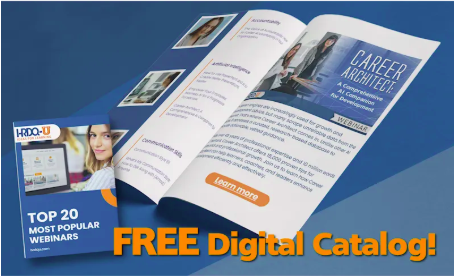
Download our catalog of our top 20 most popular webinars.